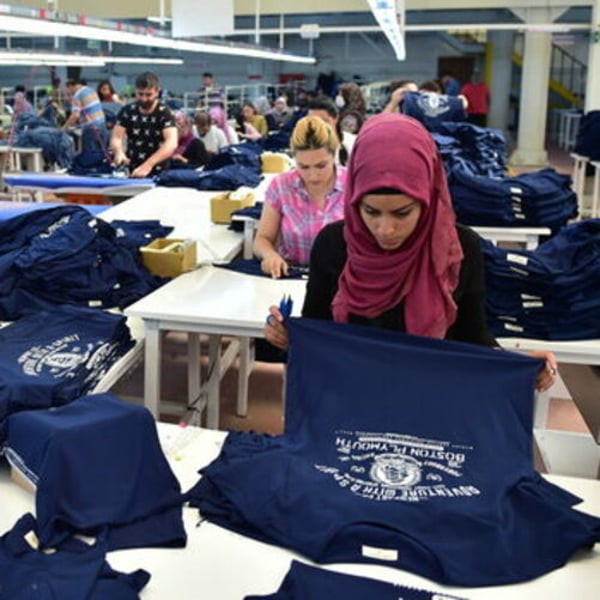
Turkey aspires to become a hub of sustainable production
Last Updated on February 2, 2024 by Admin
[ad_1]
Translated by
Roberta HERRERA
Published
Feb 2, 2024
In the face of competition from Asian nations, Turkish apparel exporters are determined to prioritize sustainability in their efforts to captivate European and American brands. They urge these brands to no longer consider price as the sole criterion.

This stance was articulated by the Istanbul Apparel Exporters’ Association (Ihkib) during the ‘Transformation Journey of the Turkish Apparel Industry’ conference, held on January 9 in Istanbul. Among the notable attendees were Dirk Vantyghem, the director-general of the European textile confederation Euratex, and representatives from prominent international brands.
“Turkey stands as one of the two countries, alongside China, where every component, from fiber to the finished product, is integrated into the supply chain,” emphasised Mustafa Gültepe, president of İHKİB and the Turkish Exporters Assembly (TIM).
“We recognize the imperative of incorporating sustainability into our existing advantages. Compliance, competitiveness, and sustainability criteria hold profound significance. We must align ourselves with environmental, social, and managerial standards, maintain competitiveness in terms of pricing, and seamlessly integrate with sustainable development,” he continued.
This unwavering commitment to transitioning towards more sustainable production aligns with a clear goal set by the industry: to elevate local apparel exports from $20 to $40 billion. This is a substantial objective for a country that represents 3% to 5% of global exports in the sector. Furthermore, this target can only be met with the support of European orders, which account for 60% of sector exports, in addition to approximately 15% of exports destined for the United States.
In 2022, Turkey ranked as the tenth-largest supplier of textile and apparel to the United States, with goods valued at 2.8 billion dollars. The country notably stood as the third-largest supplier of clothing to the EU, amounting to 21.8 billion euros, and ranked as the second-largest supplier of textiles, following China, with a value of 6.1 billion euros.
Despite its privileged (and duty-free) access to the EU market, Turkey was not immune to the decline in orders from a Europe grappling with inflation last year. Concurrently, in late November, the country opted to increase customs duties on hundreds of textile products, ranging from 30% to 100%, in a concerted effort to support its yarn and fabric manufacturers. This decision has raised concerns among local apparel manufacturers, who fear a loss of competitiveness due to the escalating cost of materials.

In this complex context, local industrialists are placing their bets on sustainability to secure growth in Western orders.
“Quality embodies inherent value, and value carries a corresponding cost,” asserted Gültepe.
“Therefore, we firmly believe that the global brands with whom we have collaborated for years should not merely approach this matter through the narrow lens of pricing. Just as with production, our collaborations should rest on a steadfast foundation of sustainability.”
The Turkish textile and apparel industry, benefiting from its duty-free access to the European market, operates through approximately 45,000 enterprises, contributing to the creation of around 2 million jobs and engaging in exports at a rate of 60%.
Copyright © 2024 FashionNetwork.com All rights reserved.
[ad_2]
Source link




